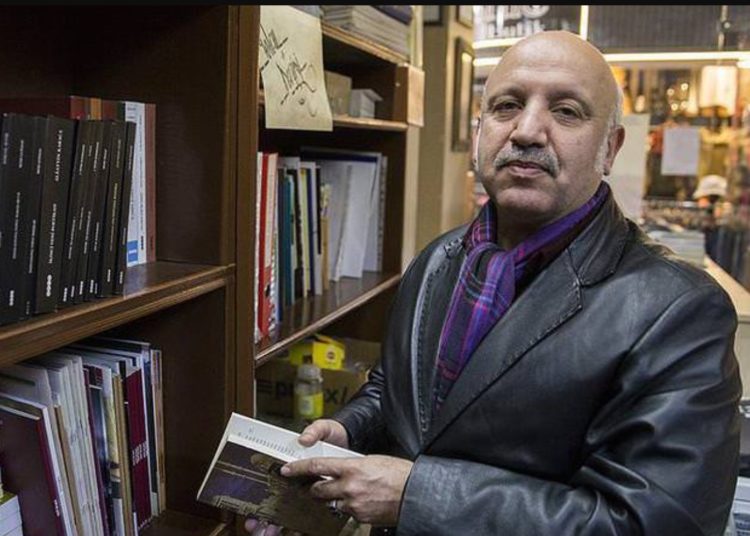Abdullah Bozkurt/Stockholm
A member of an Iranian-backed Turkish Islamist militant group who was involved in murders, bombings and kidnappings including planting a bomb on a vehicle owned by an Indian Embassy employee in Ankara in 1992 over Kashmir ran as a nominee for both a mayoral candidacy and a member of parliament on a ticket from Turkey’s ruling Justice and Development Party (AKP), which is led by President Recep Tayyip Erdoğan.
A 55-year-old Turkish national named Duran Özdemir (aka Ahmet), a felon convicted of involvement in Iran’s Islamic Revolutionary Guard Corps (IRGC) Quds Force activities in Turkey who served prison time in the past, was approved as a nominee for a mayoral candidacy by the AKP in the 2019 local elections. Although he did not win the nominee spot among AKP contenders for Ankara’s Sincan district, Özdemir still exerts influence over local party politics in the Turkish capital. In 2011 he was also a nominee on the AKP ticket for a seat in parliament but was unsuccessful.
A fresh investigation into Turkish Quds Force cells in 2010 again identified him as a suspect when his communications raised a red flag for authorities who were monitoring Iranian agents in Turkey. Özdemir was put under surveillance, his phone was wiretapped and his email was monitored under orders from prosecutors who had secured warrants. The surveillance records, obtained by Nordic Monitor, showed him meeting with an unidentified Indian national for what authorities believed was part of a scheme to help the IRGC run its operations in Turkey and India including terror plots and evading US and UN sanctions. The official surveillance record filed by the police revealed how Özdemir and his business partner Turgut Sayimler met with the Indian man on July 16, 2012 in Istanbul’s Şişli district.
Confidential police surveillance report documenting how Duran Özdemir met with the Indian national in Istanbul:
Özdemir’s network turned out to have quite a reach in the upper echelon of the Turkish intelligence agency. He has maintained ties with his long-time friend Hakan Fidan, a former noncommissioned officer who was tapped by Erdoğan to lead Turkey’s notorious National Intelligence Organization (MIT) in 2010. The documents seized from Quds Force operative Hüseyin Avni Yazıcıoğlu, also an acquaintance of Fidan, indicated that the secret documents handed over to Naser Ghafari, his Iranian handler, listed Özdemir as a reference who vouched for Fidan’s allegiance to Iran’s revolutionary views and his anti-Israel and anti-US stance.
In early 2000 Özdemir was indicted, tried and convicted for his involvement in a terrorist group and charged for his provocative role in a religious event in Ankara’s Sincan district that was organized by Iranian agents in Turkey on January 31, 1997. The event, which featured a speech by Iran’s then-ambassador, Mohammed Reza Bagheri, sparked a government crisis, drew huge criticism from various sectors and sparked a strong rebuke of the government from the Turkish military. The Iranian envoy was forced to return to Tehran, while Özdemir was sentenced to three years, six months in prison for disseminating propaganda on behalf of a Quds Force Turkish unit called Tevhid Selam.

Yazıcıoğlu was head of the culture and education department of Ankara’s Sincan Municipality at the time, and he was also convicted over the incident but fled to Iran to escape imprisonment. He later returned to Turkey and served time but was eventually let go under an amnesty granted by the government of then-Prime Minister and now President Erdoğan.
The new investigation into Quds Force cells, which started in 2010, gained speed two years later, when Turkish investigators discovered connections of the Turkish cell to events abroad, including the 2012 attacks on Israeli diplomats in the bombing of an Israeli diplomatic car in New Delhi and a botched bombing attempt on a car near the Israeli Embassy in Tbilisi. One of the suspects assigned by the Turkish cell was deployed to Georgia to collect intelligence ahead of the incident in Tbilisi.
A judge’s warrant authorizing the wiretap of suspect Duran Özdemir:
The Turkish cell already had a record for targeting Indian diplomats in Turkey. On December 12, 1992 three members of the Tevhid Selam terror group planted a bomb with a timer on a car operated by Indian diplomat Yash Paul Kumar in Ankara. The vehicle was damaged when the bomb exploded, but Kumar escaped with no injuries. During the police interrogation, Ferhan Özmen, one of the three militants who planned and executed the bombing, said the attack was intended to send a message to India over events in Kashmir. Özmen was tried, convicted and sent to prison at the time.
In his police statement, Ferhan Özmen explains how they planted a bomb on an Indian diplomat’s car in the Turkish capital:
The 2010 Turkish counterterrorism investigation exposed Iranian operatives working as embassy and consulate officers as well as Turkish assets including some government employees who were secretly working with Iranian intelligence. President Erdoğan hushed up the probe in January 2014 before the investigating prosecutor had issued warrants for suspects or finalized his indictment. Thwarted by Erdoğan, the case never went to court for a trial.
Iranian agents fled to Iran when they were alerted about the secret probe. All the suspects including Özdemir were cleared, and the overwhelming evidence collected during the three-year-long investigation was suppressed by the government. Some were promoted to key positions in the government, while others continue to run clandestine schemes on behalf of Iran’s Quds Force.
In the meantime, investigators including those who surveilled Özdemir meeting with the Indian national were dismissed and later jailed on fabricated charges.













